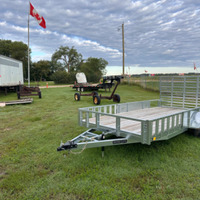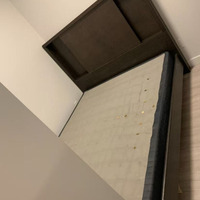It isn't often that you see junior hockey players return to the towns they played in, let along take on critical roles in them. But that is precisely what happened in the cases of Portage principals Doyle Moar and Al Patterson.
Moar, Principal at Crescentview School, outlines where it began for him.
“I played from ‘95 to ‘98. And during that time after high school, my plan was to go into the RCMP, actually. But playing junior hockey here in my hometown, there were opportunities in the schools. So, I took advantage of that and EA'd for three years at Fort La Reine and La Verendrye School," Moar continues. "And that kind of shaped my decisions after that, because after I was done junior, I was lucky enough to go play at U of M for four years, and, not going to further the RCMP plan, I needed something to do. And with my experiences in the schools, I kind of leaned towards education and got into that program there. And then 20-some years later, here we are.”
Patterson, who played from 1989 to 1992 and is now the Principal at La Verendrye School, shared a similar path.
“When I came down, there was a little bit of a pipeline from Thompson with a number of players that had joined the Terriers in the mid-80s. I came in the late 80s from 89 to 92. I came down here because there was a group of friends that were coming as well, and we wanted an opportunity to continue playing hockey together. I unfortunately didn't take the opportunity to work in any of the school systems here, but I did work in a couple of local businesses. And yeah, at the end of the day, it just kind of worked out for me that hockey was a part of my life, and I got to go play some university. Unfortunately, couldn't get into U of M, but I did get into Brandon University, and they took a risk on me and they gave me an opportunity to play and go to school. And I, like Doyle, was really leaning towards RCMP as well. Unfortunately, during that time, it just wasn't suitable for me. And they told me that I needed to go get an education. So getting my arts degree at BU and then getting into education after that kind of led me outside of Portage first, but brought me back because of the community that was here and how interested I was in coming back.”
Both men emphasize the importance of education and the journey to becoming administrators.
“Basically, what you do is you take your first degree, whether that's an arts degree or phys ed degree or anything like that, and then you take your after degree, it's a two-year education degree. After that, you have to take some sort of some sort of master's program or post-bachelor's program that gives you a little bit more education on things like whether it's resource or counselling or administration or anything like that. So, you just need you just need that extra year of school that's going to prepare you well. somewhat prepare you for what you're walking into as an administrator.”
Patterson notes, “There was an encouragement and a requirement to go back and get a post-bachelor's in educational administration, which is something that both Doyle and I have gone and actually attended some classes together.”
Now in leadership roles, both principals agree that there is value in having Terriers in the classroom.
“It’s just nice for some of our kids to have that role model in the school,” Moar said. “It’s good for the Terriers too, because they get connected to the community, they get connected to our kids. For me, if I wasn’t an EA, I wouldn’t have been a teacher. They're great with the kids. They're great outside. And they're a very important part of our schools.”
Patterson echoed the sentiment.
“At the end of the day, it's about relationships and community connections, right? So our kids have opportunities to meet some of the heroes, I guess, for lack of a better term, that they see and they watch on a regular basis. And those connections make a significant difference in a lot of the behavioural situations at our school.”
Moar concluded with a message to current players.
“I would say if you have an opportunity to do it, then do it, because you never know where that's going to take you to. Like that could be something, because we've had terriers in the past that have come in and been an EA, and when they left, they said, well, this is something that I might really want to do when I get older and stuff. So it builds, it gives you that experience too. And it's because if you're thinking about education, there's no better way to figure out whether you like it or not than to get into the schools.”
Patterson also shares that it can be a benefit to all parties involved.
“On a little bit more of a selfish note as well, I mean, I know that playing for the Terriers is a little bit different today than it was years ago when I played. There were a lot of people, including myself, who got paid money to play back in the day. And it's different now, right? So they don't get that same situation. And I know what it's like going to school with no money, even though I got paid to play back then. A lot of them aren't in any different situations. and that little bit of extra money that they could make, as well as the relationships that they build, I think will go a long way in building the character that they need to turn into.”






















